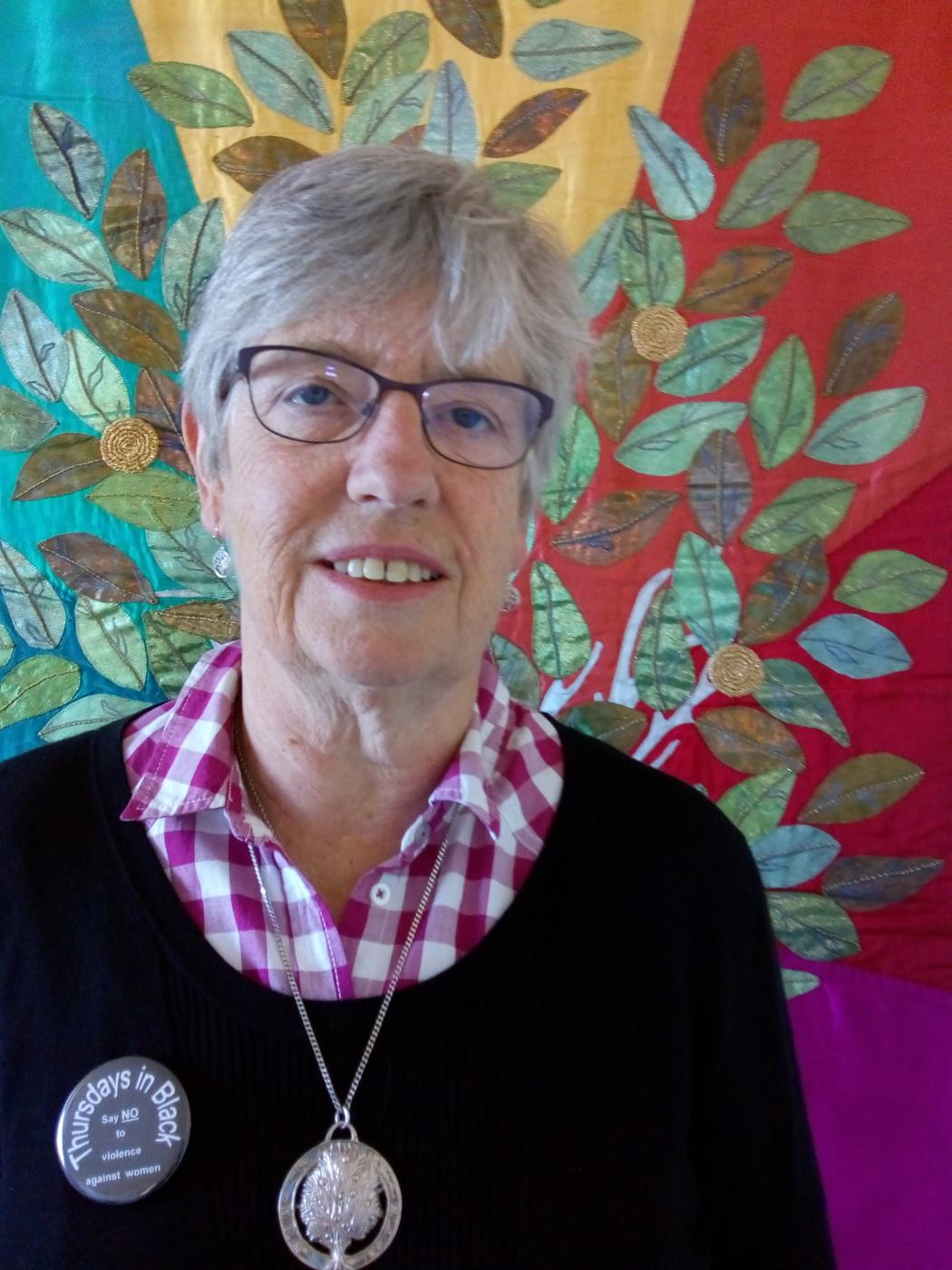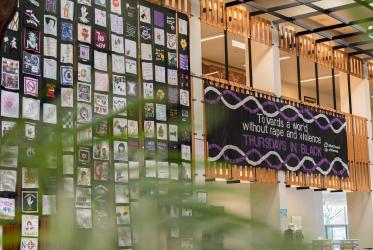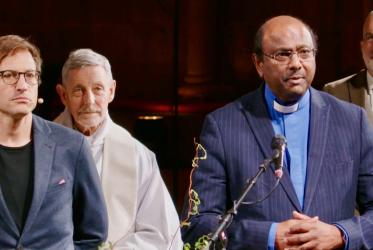Our series of interviews with Thursdays in Black ambassadors highlights those who are playing a vital role in increasing the impact of our collective call for a world without rape and violence.
Alison Judd is the world president for the World Federation of Methodist and Uniting Church Women.
Why is Thursdays in Black important to you?
Ms Judd: I remember attending a World Federation World Assembly for the first time in 2006 and, on the Thursday morning, I came into the vast dining hall and saw that the hundreds of women gathered there from many different countries were all wearing black. It took my breath away. I soon realised that this campaign was a powerful and inspiring tool for raising awareness about the scourge of gender-based violence.
What does it mean for you to be an "ambassador" for Thursdays in Black?
Ms Judd: I really don’t like wearing black clothes, but each Thursday morning I think of a beautiful young girl I met in Harare, Zimbabwe. We were in a huge crowd of people at the time in the middle of Harare sports stadium, and there was a lot of noise, music and voices blaring over loud speakers. But this little girl (I’ll call her Anna) was pulling at my dress and insisting she had something important to say to me. It was difficult for me to hear what she was saying, but she persevered until I understood. She said she wanted the World Federation of Methodist and Uniting Church Women to do something to stop domestic violence.
For me, wearing black on a Thursday is a small gesture to show that I am in solidarity with women and girls who are speaking out against gender-based violence, whether in the home or workplace, in communities or as a weapon of war. But wearing black clothes is only the starting point. As an “ambassador” I need to engage with others in conversation and be willing to challenge those who condone violence.
How is the World Federation of Methodist and Uniting Church Women addressing gender-based violence?
Ms Judd: Women of the World Federation have supported this campaign since the 1980s. Many wear badges and specially printed T-shirts with the message of Thursdays in Black in their own language. In the hundreds, they have marched silently through city streets in Brazil, Liberia and elsewhere to draw attention to the campaign. They take the opportunity to speak to men’s groups about gender equality and challenge them to see that violent behaviour towards women and girls is unacceptable. Women tell their stories in area seminars and share experiences of how they have survived violent behaviour. They teach each other self-defence techniques and empower each other to realise their potential as influential leaders in their communities.
Every year, the World Federation produces study and devotional material on a different topic. This year’s study resource is focused on Sustainable Development Goal 5, Gender Equality. In particular the emphasis is on two of the UN targets for 2030:
• Eliminate all forms of violence against all women and girls in the public and private spheres, including trafficking and sexual and other types of exploitation.
• Eliminate all harmful practices, such as child, early and forced marriage and female genital mutilation.
This resource is available here on our website for download and has been translated into other languages so that women in many countries can use it for themselves, either for personal study or at a group event.
What difference do you think Thursdays in Black can make to your current efforts?
Ms Judd: Each new initiative serves to re-energise us for action. The World Council of Churches “Waterfall of Solidarity and Resistance” is one new and creative idea that is being taken up by women of the federation. I hope many will contribute messages and images to this global tapestry. When completed and exhibited, it will further serve to raise awareness of the issues around gender-based violence.
What one action do you want others to take as perhaps "the next step" beyond wearing black on Thursdays?
Ms Judd: I want us all to realise that it is not enough to wear black clothing on one day of the week; we need to address the reality of violence and rape in our communities and challenge those who perpetrate such violence to recognise that their actions are unacceptable.
Speak to the young men in your family and convince them (if needed) that any form of violence against women and girls is unacceptable. Speak to your daughters and encourage them to protect themselves.
To learn more about Thursdays in Black ambassadors, please contact [email protected].
Thursdays in Black Ambassadors
“Ambassadors” lead Thursdays in Black Solidarity (WCC Press release of 5 September 2019)







